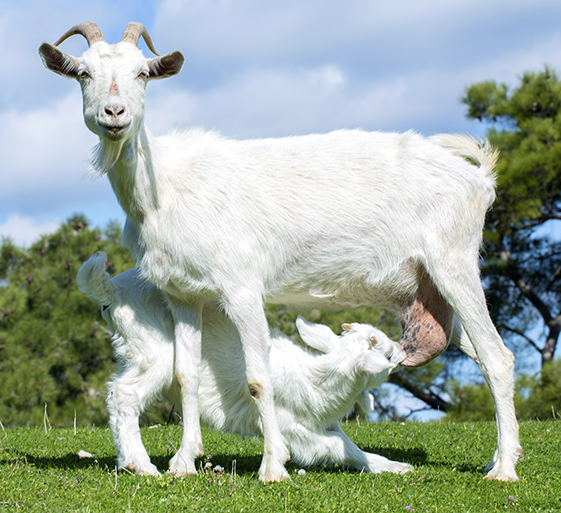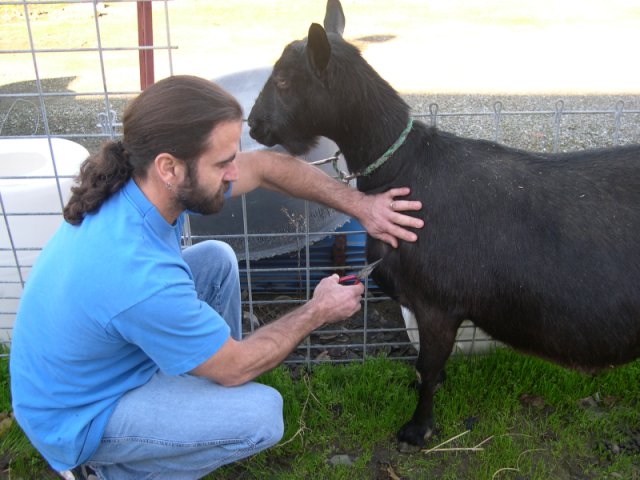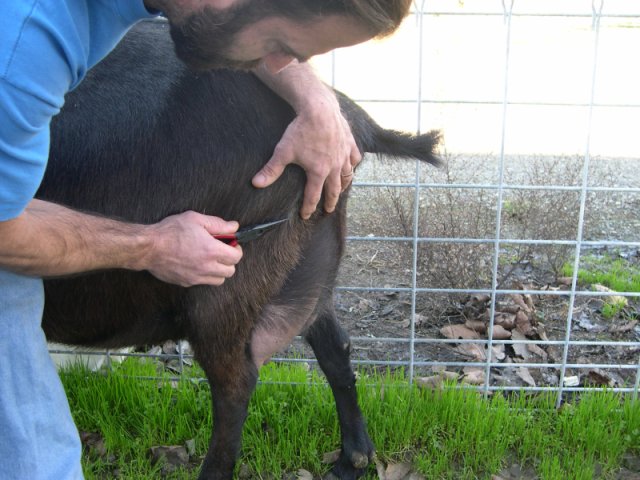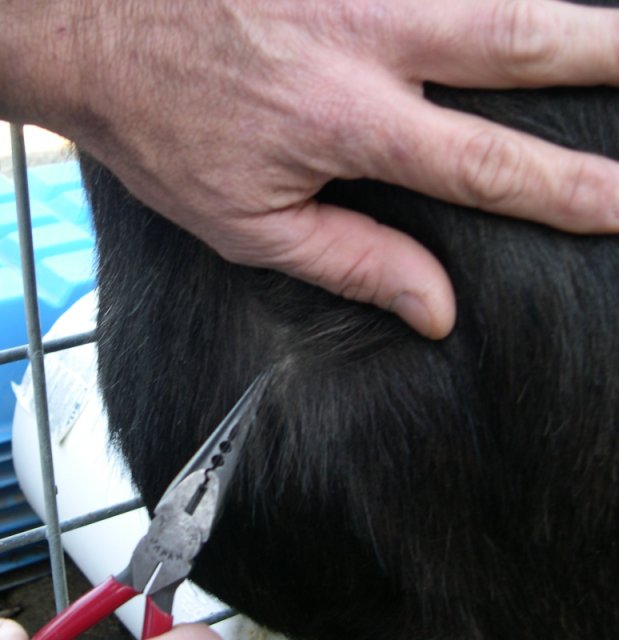Quick Summary

Click here for Price and Turnaround Time
Phenotype: The gene underlying the production of alpha-s1 casein in goat's milk shows polymorphisms which affect the amount of protein and fat produced. Higher levels of alpha-s1 casein are associated with the best cheese making, and research suggests that low levels may be associated with reduced milk sensitivities for some people.
Variants:
- E, F, N = associated with low content of alpha-s1 casein
- A, B = associated with high content of alpha-s1 casein
Breeds appropriate for testing: Many breeds including common dairy breeds such as Alpine, LaMancha, Nigerian Dwarf, Nubian, Oberhasli, Saanen, Toggenburg
Explanation of Results:
- Goats with any combination of "high" variants (A/A, A/B, B/B) will produce high amounts of alpha-s1 casein.
- Goats with a combination of a "high" variant and a "low" variant (A/E, A/F, A/N, B/E, B/F, B/N) will produce intermediate amounts of alpha-s1 casein.
- Goats with any combination of "low" variants (E/E, E/F, E/N, F/F, F/N, N/N) will produce low amounts of alpha-s1 casein.
Sample Collection
Most goat DNA tests offered by the VGL are carried out using 20-40 hairs with roots.
Hair root from coarse, longer hair often found over withers, chest, rump, tail, back of hind leg, poll, or fetlock is the preferred sample type for goats.
Instructions
1. Clean (use comb if possible) by removing all loose hair and foreign matter.
2. Use fingers or pliers to grasp approximately 8-10 hairs close to the skin and pull. Pull (do NOT cut) hair strands. Examine the end of hair strands for presence of root bulbs. Hair roots are necessary for DNA testing. If the majority of hair strands lack the root bulbs, discard hair and start again.
3. Repeat until you have approximately 20-40 hairs with root follicles attached.
4. Place the 20-40 hairs with root follicles attached in the envelope and seal with the animal’s ID written on the envelope.
5. Repeat steps 1-4 for each additional animal being sampled.
Note:
- Hair should be dry.
- If hair has excess dirt and debris, please brush out if possible before pulling hairs for sample.
- Do not cut the hair! The roots contain the DNA for testing.
- When sampling several animals in the same session, make sure that there are no hair strands in your hands to reduce the possibility of sample contamination. Clean hands and/or pliers if possible.
Examples
Sampling goat chest hair:

Sampling goat rump hair:

Sampling technique using pliers:

Alpha-s1 casein is one of the four casein proteins found in goat's milk and is the most important of the four for cheese making. The goat alpha-s1 casein gene (CSN1S1) that produces the protein shows polymorphisms which affect the amount of protein and fat produced, with higher levels associated with the best cheese making. Research suggests that low levels of alpha-s1 casein may be associated with reduced milk sensitivities for some people.
DNA tests have been developed which can allow breeders to select production levels of alpha-s1 casein. This test is designed to detect variants E, F, and N which are known to be correlated with low production; high level variants are reported as A or B, which represents several known alleles.
